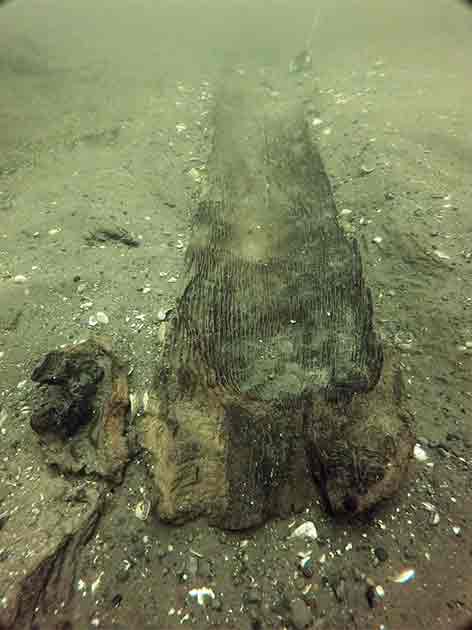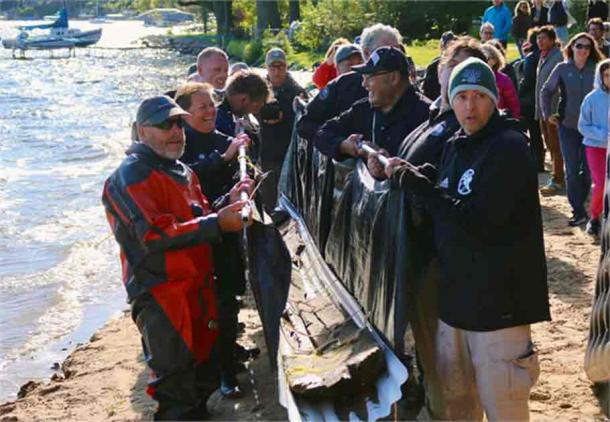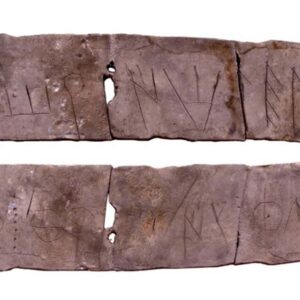Up to date
25 Might, 2024 – 12:48
Gary Manners
11 Historical Canoes at Lake Mendota Reveal Wisconsin’s Early Civilizations
- Learn Later
Archaeologists from the Wisconsin Historic Society have unearthed as much as 11 historic canoes on the backside of Lake Mendota in Madison, Wisconsin, providing new insights into the area’s early civilizations. Amongst these exceptional finds is a dugout canoe estimated to be roughly 4,500-years-old, making it the oldest canoe ever found within the Nice Lakes area. This discovery not solely units a brand new document but in addition deepens our understanding of the technological and cultural practices of the traditional peoples who as soon as inhabited the world.
The Journey to Discovery
The journey to this vital discovery started in 2021 when a dive workforce excavated a 1,200-year-old canoe from Lake Mendota, Madison’s largest lake. Almost a yr later, divers efficiently retrieved a second wood boat estimated to be 3,000-years-old. On the time, this canoe was thought-about the oldest of its form ever discovered within the Nice Lakes area. Nevertheless, this document was shattered with the latest unearthing of an excellent older elm canoe, relationship again to round 2,500 BC, proven within the prime picture.
Wisconsin Public Radio (WPR) notes how in complete, the archaeologists have found as many as 11 historic canoes in a piece of Lake Mendota, together with the 2 excavated in 2021 and 2022. The canoes vary in age from 800 to 4,500-years-old, representing totally different intervals and doubtlessly a number of generations of canoe builders.
Dr. Amy Rosebrough, State Archaeologist for the Wisconsin Historic Society explains of the exceptional set of findings on the Wisconsin Historical Society website:
“What we thought at first was an remoted discovery in Lake Mendota has advanced into a big archaeological web site with a lot to inform us in regards to the individuals who lived and thrived on this space over hundreds of years and in addition offers new proof for main environmental shifts over time.”
- 1,200-12 months-Previous Ho-Chunk Dugout Canoe Discovered In Wisconsin Lake
- Europe’s Well-known Mesolithic Pesse Canoe: Earth’s Oldest Recognized Boat

A 3,000-year-old canoe sits in its authentic resting place on the backside of Lake Mendota in Madison following excavation work. (Tamara Thomsen/ Wisconsin Historical Society)
Insights into Early Civilizations
The traditional canoes present strong proof of an archaic civilization that flourished between 3,500 and 4,500-years-ago in what’s now often known as Wisconsin’s 4 Lakes Area. Amy Rosebrough instructed that the canoes may need been deliberately submerged to stop them from freezing and warping through the winter months, solely to be buried by pure forces over time. This speculation signifies a classy understanding of preservation strategies by these early folks.
The canoes had been found within the ancestral territory of the Ho-Chunk Nation. Researchers imagine the canoes had been constructed by ancestors of modern-day Indigenous nations. The Ho-Chunk Nation refers back to the 4 Lakes Area as Dejope and to Lake Mendota as Tee Waksikhominak. These discoveries affirm the long-standing presence and ingenuity of indigenous peoples within the area.
Invoice Quackenbush, historic preservation officer for the Ho-Chunk Nation, emphasised the cultural significance of those canoes. “Seeing these canoes with one’s personal eyes is a robust expertise,” Quackenbush stated, quoted within the WPR report. “They function a bodily illustration of what we all know from intensive oral traditions that Native students have handed down over generations.” These artifacts present a tangible connection to the previous, reinforcing the continuity and resilience of Indigenous cultures.
- Earliest Neolithic Boats Present in Mediterranean Date Again to five,000 BC
- Papua New Guinea’s Sepik River Rituals

Retrieving the canoes resembles a rescue operation. (Wisconsin Historical Society)
Preservation and Future Analysis
To raised perceive these historic artifacts, the Wisconsin Historic Society has partnered with the Ho-Chunk Nation and different tribal historic preservation officers to conduct ground-penetrating radar (GPR) research of the frozen lake. This non-invasive method, spearheaded by Quackenbush, is crucial for uncovering and analyzing ancestral websites with out disturbing them. GPR research performed in 2022 and 2023 have supplied invaluable information, with additional expeditions deliberate for later this yr.
Whereas the 1,200 and three,000-year-old canoes are being preserved and can ultimately be displayed on the Wisconsin Historical past Heart, set to open in 2027 at Capitol Sq. in downtown Madison, the remaining canoes will possible keep submerged. These historic boats are too fragile to resist restoration and preservation as a result of extended publicity to pure components and human disturbances. The choice to depart the vast majority of the canoes in place was made in collaboration with Tribal Historic Preservation Officers after figuring out that these artifacts weren’t bodily intact sufficient to outlive the restoration course of.
Additional research are deliberate to study as a lot as potential from the submerged canoes. The Wisconsin Historic Society plans to collaborate with the Iowa Workplace of the State Archaeologist and the College of Iowa to make use of sonar boats for additional mapping of Lake Mendota. This superior know-how will assist researchers acquire a extra complete understanding of the lake’s archaeological panorama.
High picture: A 4,500-year-old dugout canoe present in Lake Mendota. Supply: Wisconsin Historical Society
By Gary Manners





